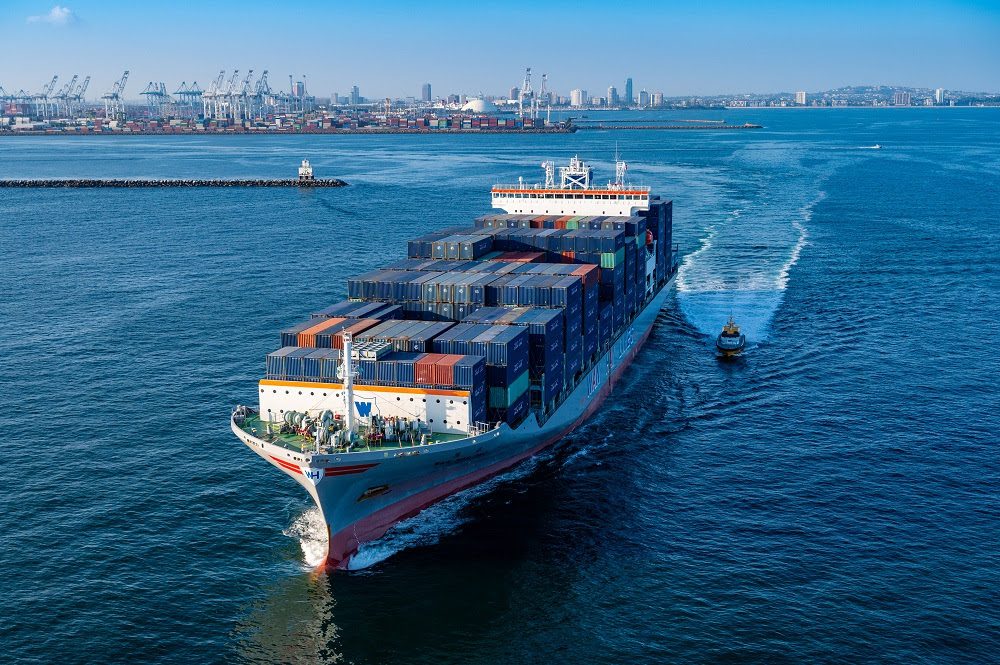China Claims Taiwanese Smuggling Ring Behind Subsea Cable Sabotage Case
Chinese authorities on Wednesday said two Taiwanese citizens led a smuggling operation involving a Chinese-crewed vessel that damaged subsea cables earlier this year.

By Jennifer Carpenter
The United States must renew its commitment to a strong, reliable American maritime capability to confront emerging threats. China’s aggressive shipping expansion poses significant challenges to the United States and our allies. Global tensions have highlighted the vulnerability of maritime supply chains, and our domestic waterways remain a potential pathway for increasingly belligerent adversaries to cause harm.
The Merchant Marine Act — commonly known as the Jones Act — is vital to defending American interests and sovereignty amid these complex challenges. June marked the anniversary of this bedrock law and the founding of America’s Merchant Marine. These institutions enable our nation’s industrial base and naval power to safeguard global supply chains, preserve military readiness and protect our homeland security.
The Chinese Communist Party has long understood the importance of its maritime industry, funneling hundreds of billions of dollars in subsidies into its shipyards and shipping companies. China’s ambition to extend its influence and control over the global supply chain has had an immediate and pronounced effect. For example, the leading association for Europe’s shipbuilders has grimly declared that “without a fundamental change in shipbuilding policies, Europe will lose the capability to build seagoing merchant ships on any significant scale over the coming 10 years,” mainly due to China. Meanwhile, the CCP has expanded its international presence into 100 ports globally and populated U.S. ports with cranes made in China, raising security concerns.
The Jones Act is fundamental to maintaining a fleet of American-built, -crewed and -owned vessels undergirding our nation’s economy and serving as a bulwark against China’s expansionism. It supports 650,000 American jobs, helps secure our domestic transportation from supply chain disruptions and buffers against anti-competitive maneuvers from China. U.S. shipyards are booked and busy building oceangoing and “brown water” vessels to meet our economic and national security demands.
Without a trusted domestic maritime industry connecting Hawaii to California, Alaska to Washington state, Florida to Puerto Rico, and the lower 48 states to one another, we would be dangerously vulnerable. The Jones Act ensures these vital domestic trade lanes are independent of foreign interests and underpins U.S. shipbuilding.
Meanwhile, the conflicts in Ukraine and the Red Sea are stark reminders of how tenuous the free movement of cargo can be. Russia’s invasion of Ukraine and its potential implications for the global supply and transport of grain have kept the world on edge since 2022. Today, the Houthis’ continuous assault on international shipping through the Red Sea has caused commercial vessels to divert from that major channel and reroute around South Africa. They have fired upon American mariners aboard U.S.-flagged ships carrying vital government cargoes while Chinese ships have passed through unencumbered.
On top of enabling American control over our supply chain, the Jones Act is also critical to maintaining our military readiness. Our armed forces count on barges to transport military equipment between U.S. bases on our domestic waterways and rely on tugboats to help Navy ships safely enter and exit U.S. ports. The Jones Act ensures that American vessels perform these critical tasks and also that the United States maintains a robust pool of trained mariners for the military’s critical sealift needs.
Gen. Jacqueline D. Van Ovost, the commander of U.S. Transportation Command, underscored this to Congress, remarking that the Jones Act and associated laws “work to ensure TRANSCOM has the necessary U.S.-flagged capability and U.S. merchant mariners ready to move sensitive defense materials during a national emergency.”
The Jones Act is a vital asset for protecting our people and infrastructure from bad actors by limiting foreign vessels’ ability to roam our inland waterways and allowing the Coast Guard to safeguard our nation’s waterways using taxpayers’ critical dollars more efficiently. Without the law, the Coast Guard’s already difficult homeland security mission would be even more complex at a dangerous time.
The United States must be clear-eyed and affirm its commitment to American maritime and the security it provides. It’s time for our maritime industrial base to receive the national attention it deserves to ensure the strong defense and economic resilience this country demands. The Jones Act and the 650,000 men and women of American maritime are just the start.
Jennifer Carpenter is the president of the American Maritime Partnership as well as President and CEO of the American Waterways Operators. She wrote this for InsideSources.com.

Sign up for gCaptain’s newsletter and never miss an update

Subscribe to gCaptain Daily and stay informed with the latest global maritime and offshore news
Essential news coupled with the finest maritime content sourced from across the globe.
Sign Up